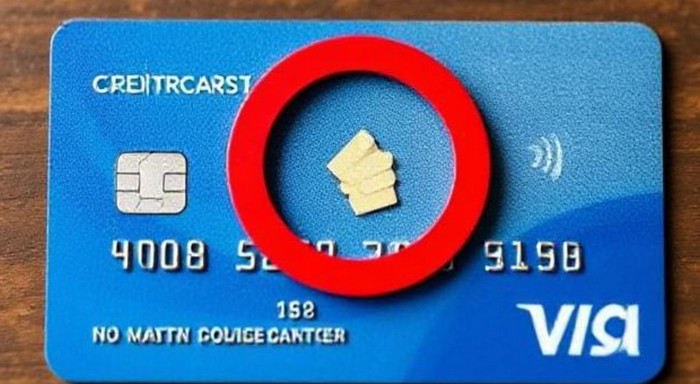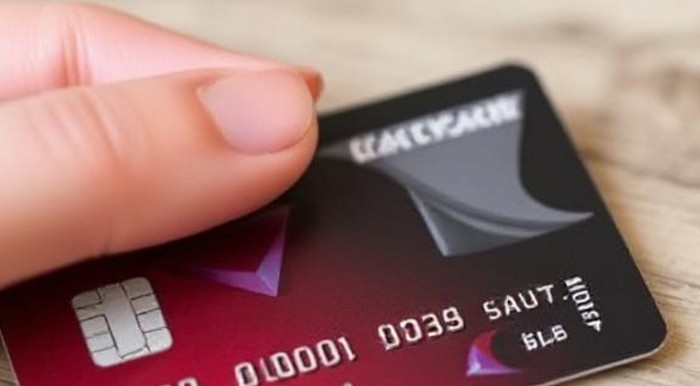# How Credit Card Companies Investigate Disputes: A Comprehensive Guide
## Introduction to Credit Card Disputes
Credit card disputes occur when cardholders challenge transactions on their accounts that they believe to be unauthorized, fraudulent, or otherwise incorrect. The dispute process is a consumer protection mechanism mandated by the Fair Credit Billing Act (FCBA) and other regulations, designed to safeguard cardholders from unfair billing practices and fraudulent charges.
When a dispute is initiated, credit card companies launch detailed investigations to determine the validity of the claim. These investigations follow specific procedures and timelines established by card networks (Visa, Mastercard, American Express, Discover) and federal regulations. The process involves multiple parties including the cardholder, merchant, acquiring bank, and issuing bank, with the credit card company acting as mediator and arbiter.
This comprehensive guide examines the step-by-step investigation process, the roles of various stakeholders, the evidence considered, and the factors that influence dispute outcomes.
## The Dispute Investigation Process: Step by Step
### 1. Dispute Initiation by Cardholder
The investigation begins when a cardholder identifies an unauthorized or incorrect charge and contacts their card issuer to dispute it. Disputes must typically be filed within 60 days of the statement date when the charge appeared, though timeframes may vary by card network.
Cardholders can initiate disputes through:
– Online banking portals
– Mobile banking apps
– Phone calls to customer service
– Written dispute letters (for FCBA claims)
Required information includes:
– Cardholder name and account number
– Transaction date and amount
– Merchant name
– Detailed reason for dispute
– Any supporting documentation
### 2. Preliminary Review by Issuing Bank
Upon receiving a dispute claim, the issuing bank (the cardholder’s bank) conducts an initial assessment:
– Verifies the cardholder’s account status
– Confirms the transaction exists
– Checks if the dispute falls within allowable timeframes
– Determines if the claim falls under valid dispute reasons
Common valid dispute reasons include:
– Unauthorized/fraudulent transactions
– Merchant didn’t provide promised goods/services
– Goods received were defective or not as described
– Billing errors (incorrect amounts, duplicate charges)
– Cancelled recurring payments
– Non-receipt of credit for returns
### 3. Provisional Credit Issuance
For most qualifying disputes, the issuer will:
– Immediately remove the charge from the cardholder’s account
– Provide a provisional credit for the disputed amount
– Continue investigating while the credit is in place
This protects consumers during the investigation period, which can take up to 90 days under FCBA guidelines. If the dispute is ultimately denied, the provisional credit will be reversed.
### 4. Chargeback Initiation
If the issuer determines the dispute has merit after preliminary review, they initiate a chargeback:
– The disputed amount is debited from the merchant’s acquiring bank
– Funds are credited back to the issuer
– A chargeback reason code is assigned (varies by card network)
– The case enters the formal dispute resolution process
### 5. Merchant Notification and Response
The merchant’s acquiring bank receives the chargeback and:
– Notifies the merchant of the dispute
– Provides details about the claim
– Requests evidence to rebut the chargeback
– Sets a response deadline (typically 20-45 days)
Merchants may respond by:
– Accepting the chargeback (no contest)
– Providing compelling evidence to refute the claim
– Issuing a refund to resolve the dispute
### 6. Evidence Collection and Evaluation
Both parties submit evidence to support their position:
**Cardholder Evidence May Include:**
– Police reports (for fraud cases)
– Documentation of attempted resolution with merchant
– Proof of returned merchandise
– Correspondence with merchant
– Tracking information showing non-delivery
– Photos of defective goods
**Merchant Evidence May Include:**
– Signed receipts or delivery confirmation
– Proof of service provision
– Customer authorization records
– Terms of service acknowledging no-refund policy
– Evidence the cardholder benefited from the purchase
– IP addresses, device IDs matching cardholder
### 7. Arbitration (If Necessary)
If either party disagrees with the initial decision, they may escalate to arbitration:
– The card network (Visa, Mastercard, etc.) reviews all evidence
– Makes a binding decision on liability
– Charges arbitration fees to the losing party
– Issues final ruling that both parties must accept
### 8. Final Resolution
The investigation concludes with one of these outcomes:
– Chargeback upheld: Merchant loses the funds and may pay fees
– Chargeback reversed: Provisional credit is removed from cardholder
– Partial settlement: A compromise amount is determined
– Case closed due to insufficient evidence (varies by network rules)
## Key Factors in Dispute Investigations
### 1. Reason Codes
Each dispute is categorized by standardized reason codes that determine:
– Required evidence
– Liability rules
– Processing timelines
– Potential fees
Major categories include:
– Fraud (card-present, card-not-present)
– Authorization issues
– Processing errors
– Consumer disputes (goods/services not provided)
– Cancelled recurring transactions
### 2. Liability Rules
Card networks establish liability frameworks that determine:
– Which party bears responsibility for fraudulent transactions
– When merchants versus issuers absorb losses
– Special cases like “friendly fraud” (cardholder disputes valid charges)
Liability depends on factors like:
– EMV chip use (chip vs. magnetic stripe)
– Card-present vs. card-not-present environments
– Merchant compliance with security standards
– Timeliness of fraud reporting
### 3. Compelling Evidence Standards
The quality and completeness of evidence significantly impacts outcomes. Compelling evidence must:
– Directly address the dispute reason
– Be verifiable and authentic
– Demonstrate compliance with network rules
– Show clear proof of service delivery or cardholder authorization
### 4. Timelines and Deadlines
Strict deadlines govern each investigation phase:
– Cardholders typically have 60-120 days to dispute
– Merchants usually have 20-45 days to respond
– Issuers must resolve FCBA claims within 90 days
– Chargeback rights expire if deadlines are missed
## Special Investigation Scenarios
### 1. Fraud Investigations
For suspected fraud, issuers may:
– Immediately block the compromised card
– Analyze transaction patterns for red flags
– Check against global fraud databases
– Coordinate with law enforcement for large-scale breaches
– Require affidavits from cardholders
### 2. Merchant Disputes (Goods/Services Not Received)
These complex cases require evaluating:
– Merchant fulfillment policies
– Delivery confirmation records
– Communication history between parties
– Merchant reputation and complaint history
### 3. Recurring Payment Disputes
Investigations focus on:
– Proper cancellation procedures
– Disclosure of terms
– Evidence of cancellation requests
– Continued billing after valid cancellation
### 4. Friendly Fraud Cases
Increasingly common scenarios where cardholders:
– Dispute legitimate charges after receiving goods
– Claim non-receipt when items were delivered
– Forget about authorized purchases
Investigators look for:
– IP addresses matching cardholder
– Previous similar purchases
– Device fingerprints
– Account login patterns
## The Role of Technology in Dispute Investigations
Modern credit card companies employ sophisticated systems to streamline investigations:
### 1. Automated Dispute Platforms
– AI-powered initial claim assessment
– Robotic process automation for evidence collection
– Digital case management systems
### 2. Fraud Detection Systems
– Machine learning models analyzing spending patterns
– Real-time transaction scoring
– Behavioral biometrics analysis
### 3. Document Verification Tools
– Image recognition for receipt validation
– Digital forensics for document authentication
– Geolocation verification
### 4. Data Analytics
– Merchant performance benchmarking
– Dispute trend analysis
– Predictive modeling for dispute outcomes
## Consumer Rights and Responsibilities
### Cardholder Rights Under FCBA:
– Protection from liability for unauthorized charges (>$50)
– Right to dispute billing errors
– Right to withhold payment during investigation
– Right to receive written explanation of outcomes
### Cardholder Responsibilities:
– Prompt reporting of suspicious activity
– Cooperation with investigation requests
– Good faith effort to resolve with merchant first (for service disputes)
– Accurate representation of facts
## Merchant Rights and Best Practices
Merchants can protect themselves by:
– Maintaining detailed transaction records
– Using secure payment processing systems
– Providing clear refund/return policies
– Promptly responding to chargebacks
– Implementing fraud prevention tools
## Emerging Trends in Dispute Resolution
### 1. Collaborative Dispute Resolution
– Direct communication channels between merchants/cardholders
– Pre-arbitration mediation options
– Partial refund settlement tools
### 2. Real-Time Dispute Resolution
– Instant claim filing via mobile apps
– Immediate merchant response options
– Automated resolution for low-value disputes
### 3. Enhanced Data Sharing
– Merchant performance history in dispute decisions
– Cardholder dispute history evaluation
– Third-party data integration (delivery services, etc.)
Credit card dispute investigations are complex processes balancing consumer protection with merchant fairness. By understanding the detailed procedures, evidence requirements, and decision factors, both cardholders and merchants can more effectively navigate disputes. As payment systems evolve, investigation methods continue incorporating advanced technologies while maintaining core consumer rights established by decades of financial regulations.
The most effective strategy for all parties is prevention: cardholders should monitor accounts regularly, merchants should maintain impeccable transaction records, and issuers should invest in fraud detection—reducing the need for disputes while ensuring fair resolution when they do occur.


